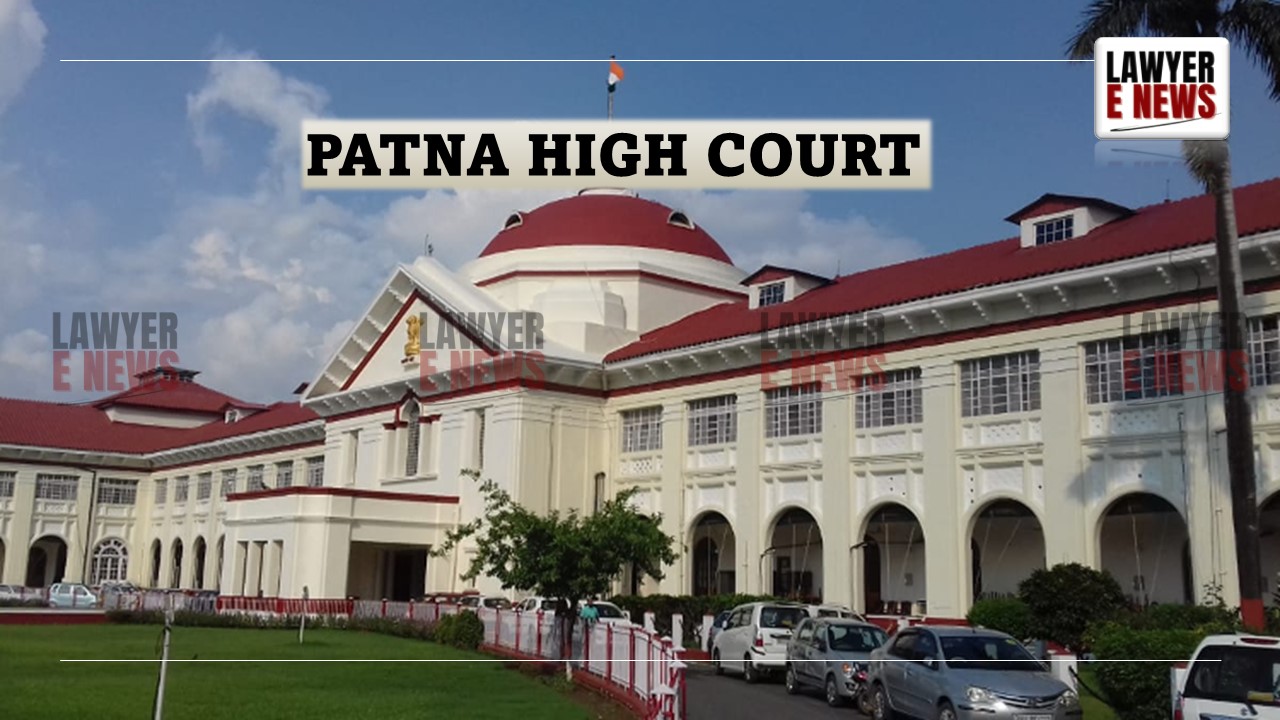-
by Admin
15 February 2026 2:36 AM



Patna High Court dismissed two appeals filed by defendant-appellant Ganga Bishun Singh, challenged the preliminary decree of partition passed on April 8, 1986, and the final decree passed on August 1, 2016. Both decrees were upheld, reaffirming that the suit properties had not been partitioned earlier and continued to remain joint among the family members.
Justice Sunil Dutta Mishra ruled that the defendants had failed to prove prior partition by metes and bounds and that the Panchnama relied upon as evidence of prior partition was inadmissible under Section 17(b) of the Indian Registration Act, 1908. The Court also upheld the trial court’s acceptance of the Pleader Commissioner’s report, affirming that the partition had been carried out equitably.
“Burden Lies on Defendants to Prove Prior Partition,” Holds Court
The Court reiterated the well-settled principle that under Hindu law, a joint family is presumed to remain joint in title and possession unless proven otherwise. The defendants, who claimed that the properties had been partitioned in 1972 through a Panchnama, failed to provide credible evidence to rebut this presumption.
"A joint Hindu family continues to remain joint unless contrary evidence is provided. Partition by metes and bounds must be conclusively established by the party asserting it. Mere separation in mess or residence does not amount to partition."
The Court noted that the defendants failed to produce any admissible evidence to prove the separation of title or possession of the suit properties.
“Document Fails to Meet Requirements of Registration Act,” States Court
The key defense of the defendants rested on a Panchnama dated July 28, 1972, which they claimed documented the partition of the suit properties. However, the Court declared the document inadmissible, noting that it was unregistered and unsigned by all co-sharers, violating the provisions of Section 17(b) of the Indian Registration Act, 1908.
"A document that purports to create or declare rights in immovable property valued at ₹100 or more requires registration under Section 17(b) of the Indian Registration Act. The absence of registration renders the document inadmissible as evidence of partition."
Further, the Court observed that the Panchnama did not bind all co-sharers, as the daughters of Late Ram Prasad Singh (defendant nos. 14–17) and plaintiff no. 2 were not signatories to the document. Additionally, plaintiff no. 1 was a minor at the time of its alleged execution, further invalidating its authenticity.
“Family Settlements Must Be Consensual and Acted Upon,” Clarifies Court The defendants argued that the Panchnama amounted to a valid family arrangement. However, the Court rejected this argument, emphasizing that a family arrangement must be signed by all co-sharers and acted upon to have any legal effect.
"A family settlement resolving disputes must reflect the consent of all parties involved and must be implemented. In this case, the document neither had universal participation nor was acted upon consistently by the co-sharers."
The Court also noted that some properties were dealt with separately by the defendants after 1972, but such actions could not establish partition by metes and bounds, as the dealings were inconsistent and did not involve all co-sharers.
“Partition Conducted Considering Compactness and Convenience,” Rules Court
The Court upheld the trial court’s acceptance of the Pleader Commissioner’s report, which divided the properties by metes and bounds as per the preliminary decree. The Commissioner’s partition map and barwada were prepared after local inspections conducted in the presence of all parties. The objections raised by the defendant-appellant were dismissed as baseless.
The Court emphasized that interference with a Commissioner’s report is unwarranted unless clear errors are demonstrated. Referring to the Privy Council’s ruling in Chandan Mull Indra Kumar v. Chimanlal Girdhardas (1940), it observed:
"Interference with a long and careful local investigation is to be deprecated unless clearly defined and sufficient grounds exist."
The Court concluded that the Pleader Commissioner’s report had appropriately considered the principles of compactness, equality, and balance of convenience.
The Court underscored the principle that appellate courts should not disturb findings of fact by the trial court unless such findings are perverse, improbable, or based on inadmissible evidence. Citing Madhusudan Das v. Narayanibai (1983), the Court held:
"When findings of fact by a trial court are based on proper appraisal of evidence, appellate courts should refrain from interfering unless a material irregularity or misreading of evidence is shown."
The Court found no reason to disturb the trial court’s findings regarding the joint nature of the properties or the rejection of claims of prior partition.
The dispute involved the descendants of Late Nathuni Singh, who left behind three branches of heirs—those of his sons, Bihari Singh, Thakur Singh, and Ram Prasad Singh. The plaintiffs (representing the branch of Ram Prasad Singh) claimed that the suit properties were joint and sought partition. The defendants (representing the other two branches) argued that a partition had already taken place in 1972 through the Panchnama.
The trial court, in its preliminary decree dated April 8, 1986, declared the properties to be joint and allocated 1/3rd shares to each branch. A final decree was passed on August 1, 2016, confirming the division based on the Pleader Commissioner’s report. The defendants appealed both decrees.
The High Court dismissed both appeals, affirming the trial court’s judgments and decrees. Justice Sunil Dutta Mishra concluded:
"The findings of the trial court on the jointness of the properties and the rejection of the Panchnama as evidence are proper and require no interference. The Pleader Commissioner’s report was rightly accepted, and the partition was conducted equitably."
Date of Decision: November 20, 2024
